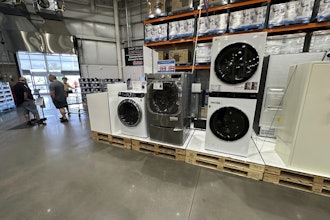
The Institute for Supply Management-Chicago released its Chicago Business Barometer — also known as the Chicago PMI — on Aug. 31, showing that business conditions in the area slid during August on factors that are plaguing the US economy as a whole.
The index, which provides a Chicagoland view of the national economy, had been churning along at a robust clip in recent months, topping 70.0 in three out of the past four, including a 47-year-high of 75.2 in May and 73.4 in July, with any reading above 50.0 indicating expansion.
But the index slid 6.6 points in August to a mark of 66.8, which is certainly still healthy, but also is evidence of a national economy that has seen recovery from the COVID-19 pandemic hindered by several factors.
ISM, along with financial news outlet MNI, said that firms in the August Chicago PMI survey said the available supply of raw materials and workers aren't sufficient to keep up with new orders. Of the index's five main indicators, Order Backlogs saw the largest increase, followed by Supplier Deliveries, while Production had the largest decline.
Expectedly, this resulted in Order Backlogs that climbed 11.6 points from July to a mark of 81.6 — its highest reading since 1951 as firms reported a shortage of materials, freight inconsistencies and insufficient staff.
Meanwhile, August Supplier Deliveries shot up 6.3 points from July to a three-month high of 92.8 in August, with one survey respondent reporting the worst delivery times in three years.
August Inventories rose 6.2 points to 48.8 — its highest since March, though still in contraction territory. ISM & MNI said firms reported stockpiling to get ahead of further supply chain disruptions, while others said their inventories were dwindling because of logistics issues.
Other August Chicago PMI stats:
- Prices Paid increased 2.3 points to 93.9 — its highest mark since 1979 as companies continued to report higher costs for production materials.
- Demand for labor increased slightly, with the Employment index ticking up 0.8 points to 48.3 as firms struggled to find qualified workers for available jobs.
- Production fell a sharp 7.8 points to a two-month low of 61.
- New Orders fell 4.4 points to 67.8
- The August Chicago PMI included a poll question of "When do you expect the supply chain impact of COVID-19 to peak?" The largest chunk of respondents — 37.8 percent — expect it to peak in 2022.
- Another poll question asked, "With enhanced Unemployment Insurance benefits set to expire in September, are you forecasting an increase in your staffing levels?” The majority said they were not.
Survey data is collected online each month from manufacturing and non-manufacturing firms in the Chicago area. Respondents are purchasing/supply-chain professionals, primarily drawn from the membership of ISM-Chicago.






















